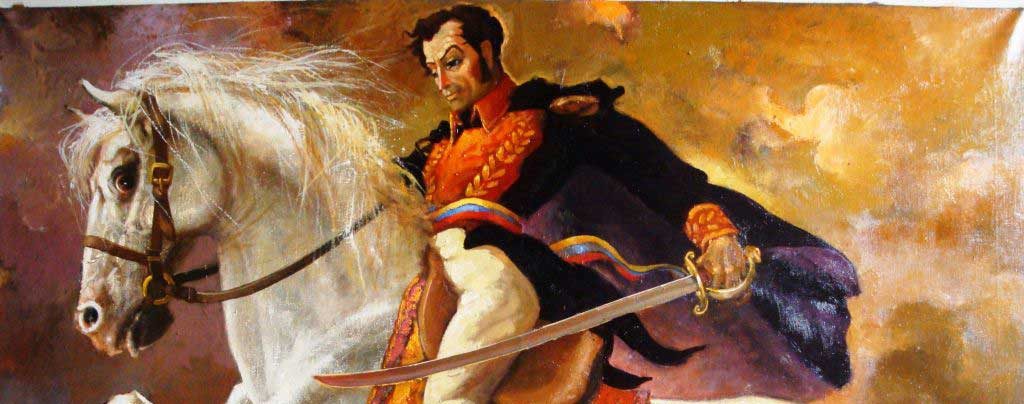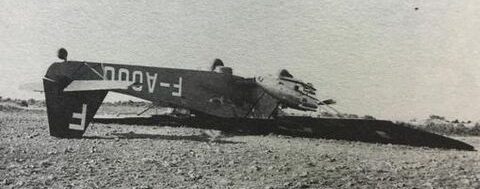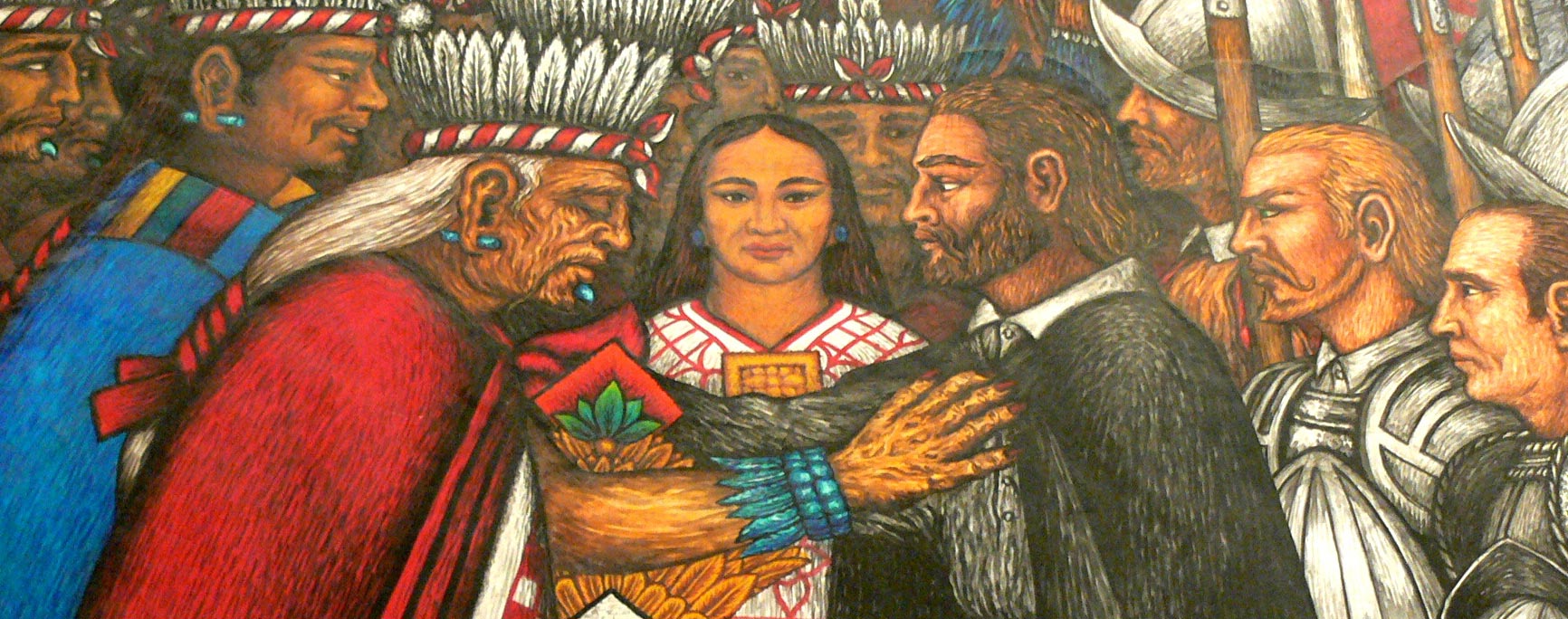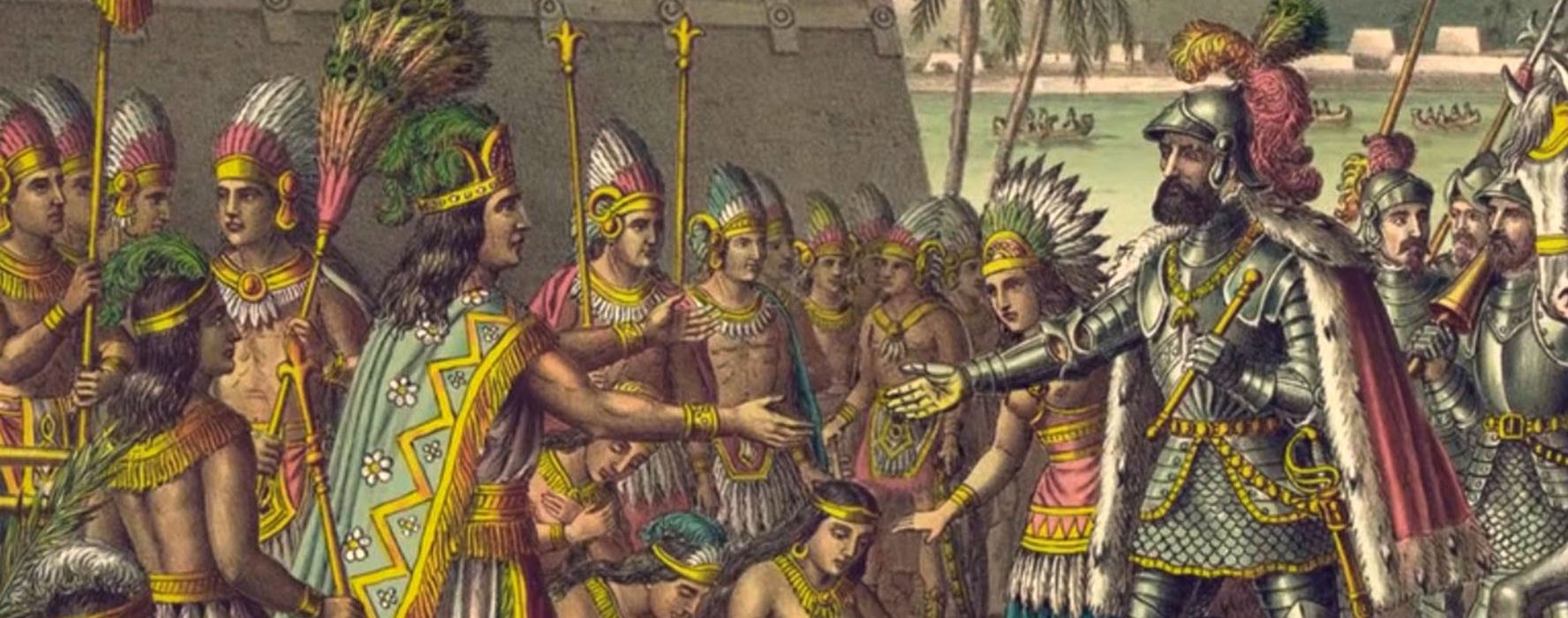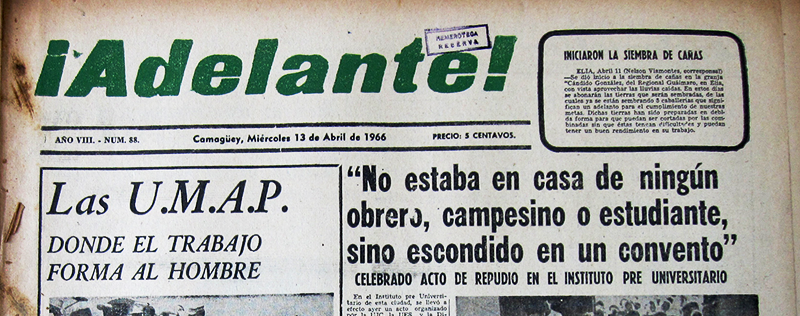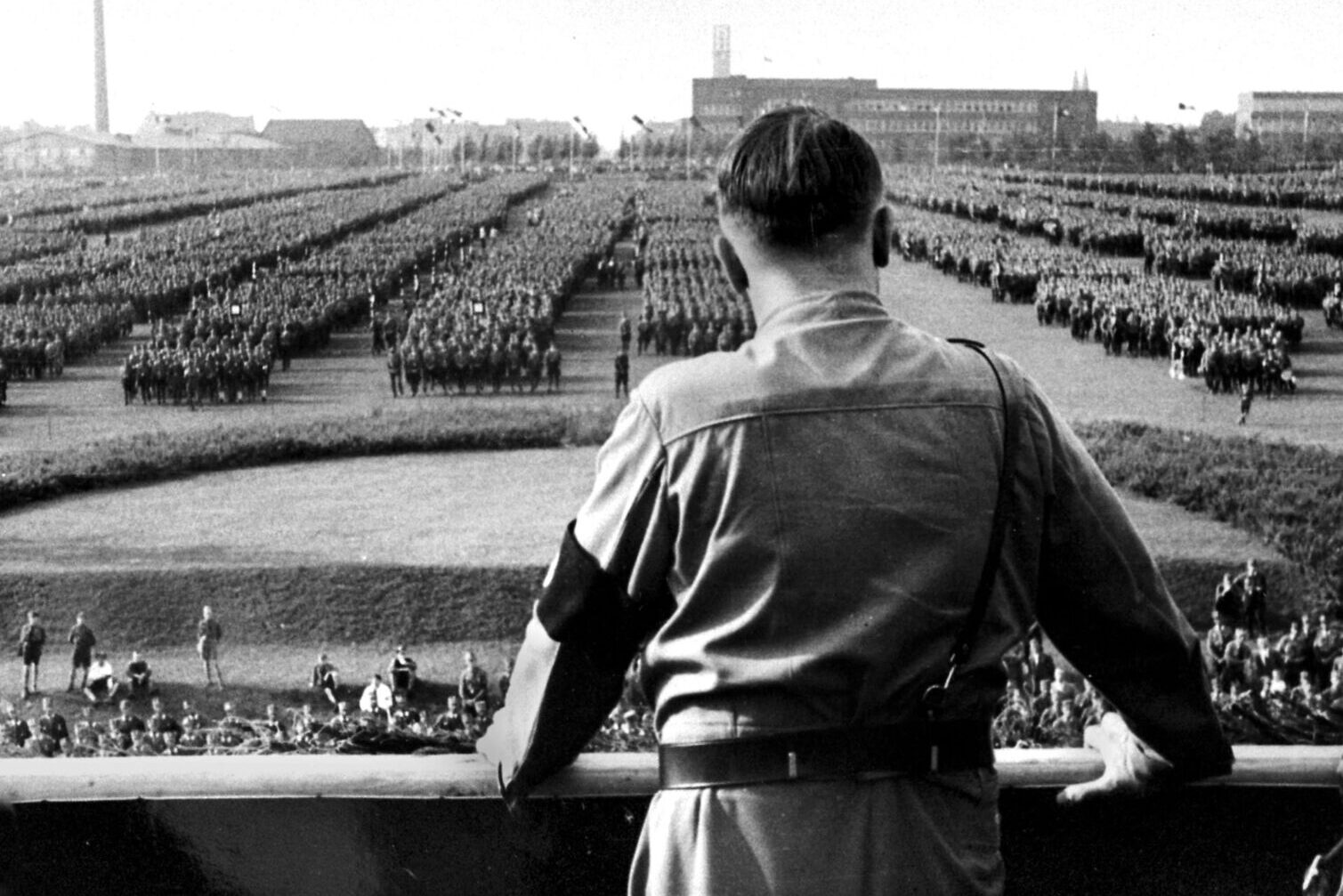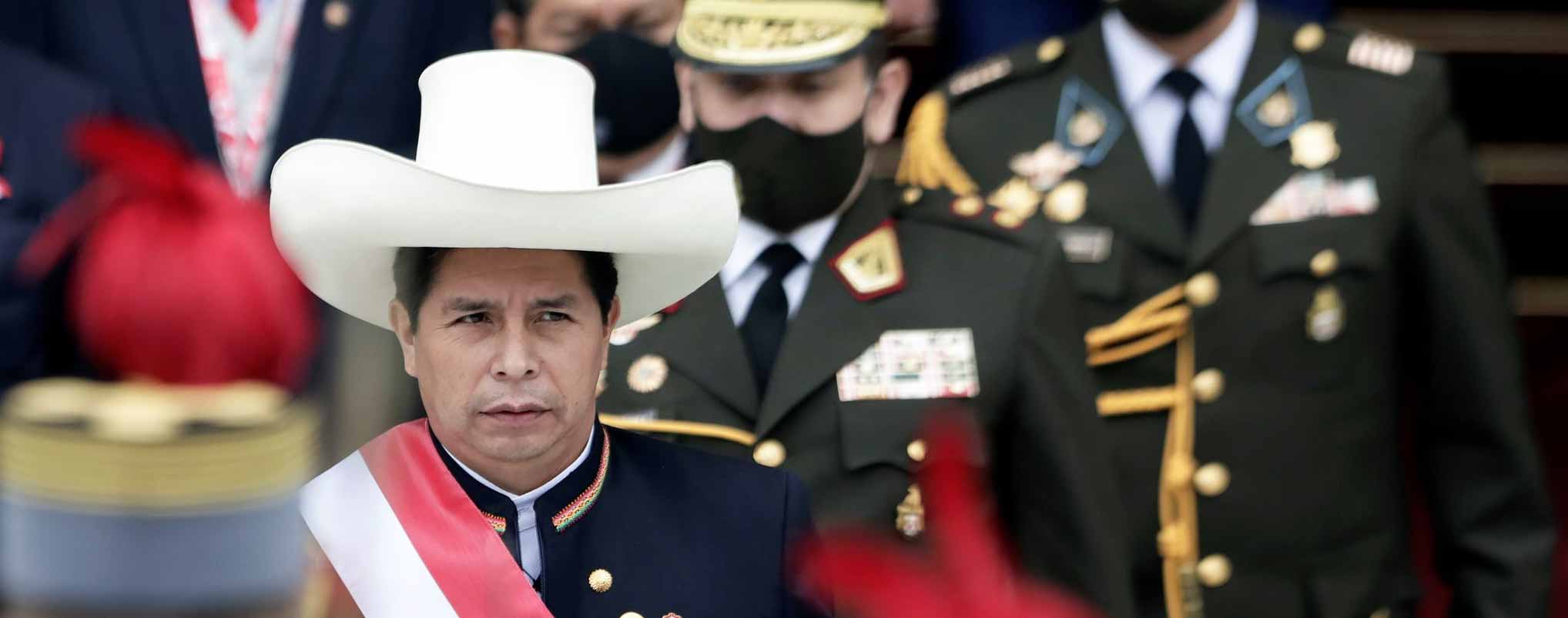Source:Afán
Simón Bolivar murdered in a terribly cruel way 2,000 defenseless Spanish prisoners.
The 382 Spaniards who had been locked up in those dungeons of Valencia for almost a year had lost track of time; as well as the 300 prisoners from La Guaira and the 518 from Caracas. Poorly fed and thirsty, with shackles on their ankles and wrists that peeled their skin, crammed with vomit, urine, and feces. In all three prisons (and even among convalescents in hospitals and makeshift infirmaries) word had spread that they were going to be executed. There were 1,200 Spaniards (of which two-thirds were Canarians) prisoners of war in part, and in part, civilians captured without having gone into battle, for the mere fact of having been born in peninsular Spain or in the Canarian islands. Indeed, the execution order issued by Simón Bolívar had reached Caracas and La Guaira on February 11, 1814. The interim governor of Caracas, Juan Bautista de Arismendi, one of the most bloodthirsty and cruel insurgents in Venezuela, presided over the abject executions. On the morning of the 12th, the extermination began both in Caracas and in La Guaira. The prisoners were taken out to the street chained in pairs, with blows and rifle butts; the sick and wounded were dragged outside; the elderly who could barely walk, tied to chairs. The mothers, wives, and daughters who went to the prisons, desperate at the barbarity that was to be perpetrated in cold blood, were violently pushed away, and some were even dragged to the wall with their men. Many prisoners claimed their freedom, previously paid for with their property, from the rebel authorities.
It was of no use to them. Firing squads began the massacre. The Spaniards fell dejected by the fire. The riflemen took turns with those who dragged the prisoners out. Until Arismendi ordered not to spend more gunpowder, expensive and scarce, and to use pikes, sabers, and machetes to end the lives of those starving wretches. Some, knowing they were dead without remission, tried to defend themselves by going against their executioners, who used savage thrusts and jabs in the arms, legs, bellies, and heads. The massacre continued on the 12th, 13th, and 14th. Many lay dying on the bloody ground and were finished off by smashing their heads with large stones. A huge pyre was made with the dismembered bodies, where many of them burned while still alive. In Valencia, presided over the execution by Bolívar himself, the 382 Spaniards were assassinated during the days 14, 15, and 16. The stench of burned meat and the screams of those who were dying remained engraved in the memory of the witnesses of that cruel massacre.
This is how the events unfolded according to the data published in La Gaceta de Caracas No. 14 of 1815, which were brought to light by the Colombian historian Pablo Victoria in his book “La otra cara de Bolívar (2010)” under the seal of Editorial Planeta Colombiana, S.A. Victoria explains that when Bolívar, impotent, at the beginning of February 1814, had to lift the siege of Puerto Cabello – defended by José Tomás Boves y de la Iglesia, commander of the Royal Barlovento Army – he requested reinforcements from Urdaneta, he was informed of the impossibility of sending them. Leandro Palacios answered the same from La Guaira, arguing that his garrison was scarce and the number of Spanish prisoners under his charge was large. The liberator did not doubt it, on February 8, he gave a written order to assassinate the prisoners of Caracas and La Guaira in order to free his jailers who would swell the reinforcements he required. When the Archbishop of Caracas, Monsignor Coll y Prat, learned of Bolívar’s macabre intentions, he wrote to him pleading for the lives of those unfortunate people. To which Bolívar replied, with absolute impiety, the following: “I have just read the reserved section of V.S. Illma. in which he interposes his very powerful mediation for me, for the Spaniards that I have arranged to take up arms … More see v. Illma. the harsh need in which our cruel enemies put us … What use have we gotten so far from keeping them prisoners and even from freeing a large part of them? … Not only by avenging my homeland but by containing the torrent of its destroyers I am bound to the severe measure that v. Illma. Has known. One less of such monsters exists is one less that has or would immolate hundreds of victims. The enemy seeing us inexorable at least will know that he will irrevocably pay for his atrocities and will not have the impunity to feel encouraged … His passionate servant and friend, Q. B. I. M. de v. Illma. Simon Bolivar”. Here is the sample of the most despicable Simón Bolívar.
Recently, the professor of History of America, professor at the ULL, Manuel Hernández González, from Tenerife, has published the book “La guerra a muerte. Simon Bolivar. La campaña admirable 1813-1815” (2015), by Ediciones Idea. In this essay, he recovers that Decree of War to Death issued by Bolívar in the city of Trujillo, in the Colombian Andes, on June 15, 1813, for which more than two thousand Spaniards are executed, of which 1,600 were Canarians, only for the fact of having been born on the other side of the Atlantic. The liberator warned the peninsular and Canary Spaniards (which he expressly differentiated) in the following terms: “Count on life if you support independence; count on death if you are indifferent”. Hernández affirms in his book that Bolívar carried out this systematic policy of executing peninsular Spaniards and Canarians in public events wherever he went and that Bolívar caused an “ethnic cleansing” that killed one-third of the Venezuelan population!, mostly immigrants, when neither peninsular Spaniards nor Canarians were his enemies. On the contrary, those peninsular and island Spaniards were a fundamental pillar for the economy of Venezuela and all of Spanish America, and therefore for the progress and well-being of its inhabitants.
There was already a first Project of war to the death that Antonio Nicolás Briceño dictated on January 16, 1813, signed by Bolívar. Pablo Victoria says in this regard that this document would change the face of the war forever, since until then, in the war scenes of Europe and America, the lives of prisoners and that of non-combatants had been respected in the vast majority of the occasions. This document “was nothing more than a disregard [contempt] for the rights of nations that sought to eliminate the contender through a policy of extermination”. One of the articles said: “As this war is directed in its first and main purpose to destroy in Venezuela the accursed race of European Spaniards … they are, therefore, excluded from being admitted to the expedition as patriots and good as they may seem, since that not a single one should be left alive”. More samples of the atrocity of the document signed by Bolívar. The ninth article rewards the barbarism of the soldiers with immediate promotions: “the soldier who presents twenty heads of said Spaniards”, would be promoted to lieutenant; “The one who presents twenty, to lieutenant; the one who fifty to captain”. Were these “patriots” soldiers or bandits?
Traditional historiography, for the most part, overlooks this heinous chapter starring Bolívar. A documented chapter that has been ignored by the majority of Hispanic American historians to take care of the image of a genocide who murdered more than two thousand defenseless Spaniards, unnecessarily, since they were not killed in battle.
The so-called wars of emancipation or independence of the provinces of Spanish America were undoubtedly a great and long civil war, whose pro-independence parties were led by rich creoles with an inordinate desire for power, against the true interests of the Spanish-American population, especially against the will of the poor and indigenous classes, who in their vast majority fought alongside those loyal to the king, refusing to do so with the rebel creoles, the main usurpers of their rights. And this is what the writer, journalist, and diplomat from Caracas, Carlos Rangel, one of the most prominent intellectuals of twentieth-century Venezuela, affirms in his book “Del buen salvaje al buen revolucionario (1976)“:
In its origin, the independence movement of 1810 had an ambiguity that only much later has come to be partially recognized. The ambitions of wealthy (or simply educated) creoles were suddenly stimulated by events in Europe, where Napoleon had overthrown the Spanish Bourbon monarchy and placed his brother José on the throne of Madrid.
At the same time, most of the Creoles were conservative and prudent, and they feared social war. Only a few were sincerely inflamed by American republican ideas and even by French Jacobin ideas […].
But there were also present (and there were many more) poor whites and a mass of Indians, blacks and pardos (mulattoes) who did not foresee, neither one nor the other, any advantage in independence, and for whom fidelity to the king and exhortations of the Church were efficient motivations […].
Very few peninsular Spaniards [he refers to those not born in Spanish America, therefore also the Canarians] took part in the fighting; But it took a hundred years before anyone dared to say what everyone knew from the beginning: that in their essence those conflicts were civil wars between Hispanic Americans.
Rangel indicates at the bottom of the page that it was the Venezuelan Laureano Vallenilla Lanz who made this statement for the first time, in a conference delivered in Caracas in 1911, and collected in the essay “It was a civil war”, part of the book Cesarismo Democrático (1920).
It was that liberator who was the protagonist of many excesses in those misnamed wars of emancipation, about whom Karl Marx wrote (who is not a saint of my devotion, far from it) in a well-known letter to Engels, dated 14 February 1858, to be the “most cowardly, brutal and miserable scoundrel. Bolívar is the true Soulouque”, adding: “The creative force of myths, characteristic of popular fantasy, in all ages has proven its effectiveness by inventing great men. The most notable example of this type is undoubtedly that of Simón Bolívar”. Now it is the “enlightened” – as was Hugo Chávez -, Nicolás Maduro (recognized functional illiterate), Evo Morales and Rafael Correa, who in an ideological coven raise their Marxist fist – what irony! – raising the figure of Bolívar.
At the end of the so-called wars of emancipation, Manuel Hernández affirms, “the economy, the haciendas, the plantations were destroyed”. You had to start from scratch. Bolívar himself said: “We have lost everything, the only thing we have won has been independence”. And from the dust of those civil wars between Hispanic Americans, then came the confusion of more civil wars and tyrannical regimes like the one that Venezuela currently suffers, in addition to the chaos of the Guatemalan, Salvadoran, and Colombian guerrillas, among others; the drug cartels that have subjugated entire nations; and, finally, a kind of social circumstances aggravated by many tyrants, who, far from sowing peace and legal security that brings foreign investment closer, scare them away with the policies of medieval feudal lords, who also confront their peoples. How long will those peoples of Spanish America suffer from the Maduro, Morales, Correa, Kirchner, and Castro? Until when will the poisoned sowing of those Creoles who betrayed Spain continue to give such weeds?
I have always believed, and still do, in the embrace between Spanish and Hispanic Americans, because language, history, culture, and religion unite us (in a great majority), with all the nuances that enrich that embrace. However, it is fair to publicize this criminal chapter of the so-called liberator, because those Spaniards who were so cruelly murdered, as well as their executioner, deserve to be remembered. I want to think that, only as a result of ignorance of these facts, many Canarian streets and squares (and in many towns in the rest of Spain) bear the name of Simón Bolívar, the murderer of more than two thousand Spaniards, of which 1,600 were Canarians; executed for the mere fact of not being born in American lands, where they had gone to work and, decisively, to enrich them.
These words are for them.
Share this article
On This Day
No Events
History of Spain
26 August 2020
27 January 2021
Communism: Now and Then
23 December 2022
28 July 2021
